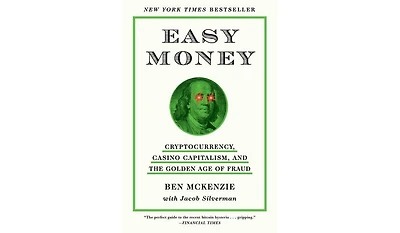Home
The Present Age: On the Death of Rebellion
Barnes and Noble
Loading Inventory...
The Present Age: On the Death of Rebellion in Franklin, TN
Current price: $14.99

Barnes and Noble
The Present Age: On the Death of Rebellion in Franklin, TN
Current price: $14.99
Loading Inventory...
Size: OS
“
The Present Age
shows just how original Kierkegaard was. He brilliantly foresaw the dangers of the lack of commitment and responsibility in the Public Sphere. When everything is up for endless detached critical comment as on blogs and cable news, action finally becomes impossible.”— Hubert L. Dreyfus, University of California, Berkeley
Soren Kierkegaard’s stunningly prescient essay on the dangers of mass media—particularly advertising, marketing, and publicity. An essential read as we reckon with, and try to understand, the media forces that have helped create our present political moment.
In
(1846), Søren Kierkegaard analyzes the philosophical implications of a society dominated by the mass-media. What makes the essay so remarkable is the way it seems to speak directly to our time—i.e. the Information Age—where life is dominated by mere “information” not true “knowledge.” Kierkegaard even goes so far as to say that advertising and publicity almost immediately co-opts and suppresses revolutionary actions/thoughts.
A stunningly prescient essay that foresaw the rise of twenty-four-hour news and social media,
examines the philosophical and political implications of a culture of endless, inconsequential commentary and debate.
The Present Age
shows just how original Kierkegaard was. He brilliantly foresaw the dangers of the lack of commitment and responsibility in the Public Sphere. When everything is up for endless detached critical comment as on blogs and cable news, action finally becomes impossible.”— Hubert L. Dreyfus, University of California, Berkeley
Soren Kierkegaard’s stunningly prescient essay on the dangers of mass media—particularly advertising, marketing, and publicity. An essential read as we reckon with, and try to understand, the media forces that have helped create our present political moment.
In
(1846), Søren Kierkegaard analyzes the philosophical implications of a society dominated by the mass-media. What makes the essay so remarkable is the way it seems to speak directly to our time—i.e. the Information Age—where life is dominated by mere “information” not true “knowledge.” Kierkegaard even goes so far as to say that advertising and publicity almost immediately co-opts and suppresses revolutionary actions/thoughts.
A stunningly prescient essay that foresaw the rise of twenty-four-hour news and social media,
examines the philosophical and political implications of a culture of endless, inconsequential commentary and debate.
“
The Present Age
shows just how original Kierkegaard was. He brilliantly foresaw the dangers of the lack of commitment and responsibility in the Public Sphere. When everything is up for endless detached critical comment as on blogs and cable news, action finally becomes impossible.”— Hubert L. Dreyfus, University of California, Berkeley
Soren Kierkegaard’s stunningly prescient essay on the dangers of mass media—particularly advertising, marketing, and publicity. An essential read as we reckon with, and try to understand, the media forces that have helped create our present political moment.
In
(1846), Søren Kierkegaard analyzes the philosophical implications of a society dominated by the mass-media. What makes the essay so remarkable is the way it seems to speak directly to our time—i.e. the Information Age—where life is dominated by mere “information” not true “knowledge.” Kierkegaard even goes so far as to say that advertising and publicity almost immediately co-opts and suppresses revolutionary actions/thoughts.
A stunningly prescient essay that foresaw the rise of twenty-four-hour news and social media,
examines the philosophical and political implications of a culture of endless, inconsequential commentary and debate.
The Present Age
shows just how original Kierkegaard was. He brilliantly foresaw the dangers of the lack of commitment and responsibility in the Public Sphere. When everything is up for endless detached critical comment as on blogs and cable news, action finally becomes impossible.”— Hubert L. Dreyfus, University of California, Berkeley
Soren Kierkegaard’s stunningly prescient essay on the dangers of mass media—particularly advertising, marketing, and publicity. An essential read as we reckon with, and try to understand, the media forces that have helped create our present political moment.
In
(1846), Søren Kierkegaard analyzes the philosophical implications of a society dominated by the mass-media. What makes the essay so remarkable is the way it seems to speak directly to our time—i.e. the Information Age—where life is dominated by mere “information” not true “knowledge.” Kierkegaard even goes so far as to say that advertising and publicity almost immediately co-opts and suppresses revolutionary actions/thoughts.
A stunningly prescient essay that foresaw the rise of twenty-four-hour news and social media,
examines the philosophical and political implications of a culture of endless, inconsequential commentary and debate.




![LXVE to DEATH [Love Sick ver.] [Barnes & Noble Exclusive]](https://prodimage.images-bn.com/pimages/0198704709432_p0_v2_s600x595.jpg)












